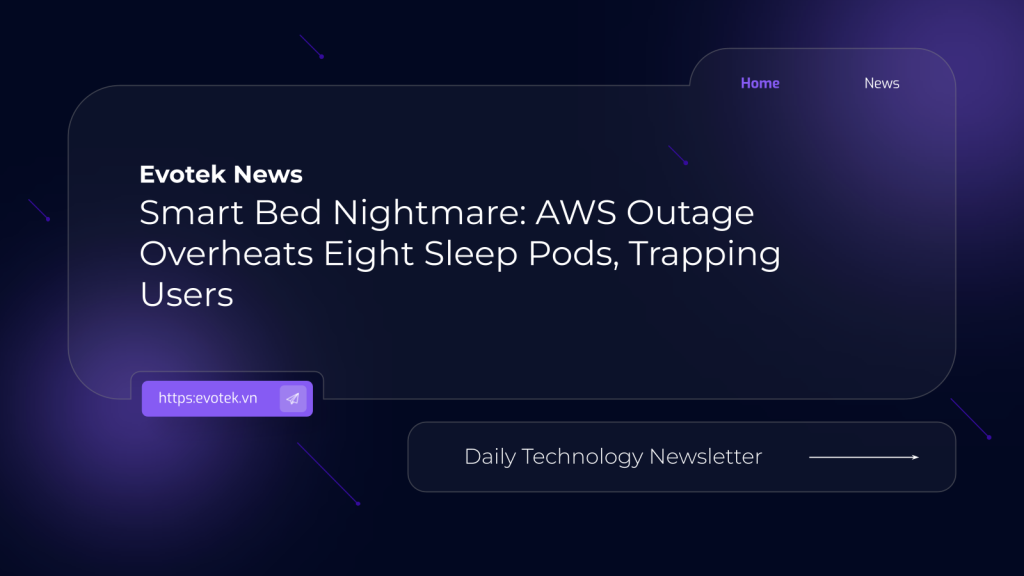A widespread Amazon Web Services (AWS) outage recently plunged countless smart beds into disarray, leaving owners of Eight Sleep’s advanced ‘Pod’ mattress covers facing a particularly uncomfortable night. The incident, which occurred on October 20, highlighted a critical vulnerability: the absence of an offline mode for these high-tech sleeping solutions, causing them to get stuck in undesirable temperatures and positions.
AWS Cloud Connectivity Failure Sparks Chaos
The digital disruption commenced around 3 AM ET, with AWS reporting “increased error rates and latencies” originating from its crucial US-EAST-1 region. By mid-morning, the ripple effect was evident, with Downdetector logging over eight million reports of service disruptions impacting a wide array of online platforms, including popular apps, video games, and essential banking services.
For Eight Sleep users, the consequences were immediate and personal. The company’s innovative products, which typically rely on seamless cloud connectivity to manage temperature and gather biometric data, lost their crucial link to the internet. This left users unable to access the app that controls the sophisticated water-cooled coils within their smart beds, effectively freezing the settings at whatever was last active before the outage.
Eight Sleep Users Stranded in Overheated Beds
The real-world impact was significant and frustrating. Many Eight Sleep Pods began to overheat, while others ceased cooling entirely. Several users reported their devices becoming completely unresponsive, transforming their luxury sleep systems into technological liabilities.
Tech enthusiast Alex Browne captured the absurdity in a viral post after his Pod locked itself nine degrees above room temperature. “Backend outage means I’m sleeping in a sauna,” he quipped, adding that Eight Sleep had confirmed the lack of an offline mode but assured users they were actively working on a solution. Another user recounted their bed getting stuck in an inclined position, unable to adjust it.
The collective frustration led some to describe their expensive smart mattresses as “bricked,” prompting widespread calls for a fundamental fallback option that could function independently of an internet connection. This isn’t the first time the company has faced scrutiny; a 2024 report highlighted security flaws, specifically exposed AWS keys that could have potentially allowed unauthorized remote access to customer devices.
Resolution and Future Commitments
AWS successfully restored normal operations by approximately 6 AM ET, with most affected services gradually coming back online shortly thereafter. In response to the crisis, Eight Sleep CEO Matteo Franceschetti issued a statement, assuring customers: “We will work the whole night+24/7 to build an outage mode so the problem will be fixed extremely quickly.”
This incident serves as a stark reminder of the growing dependency on cloud infrastructure for modern IoT devices and the critical importance of robust fallback mechanisms. As smart home technology continues to integrate into our daily lives, ensuring uninterrupted functionality and user control, even during widespread digital disruptions, remains a paramount challenge for manufacturers.

 日本語
日本語 한국어
한국어 Tiếng Việt
Tiếng Việt 简体中文
简体中文